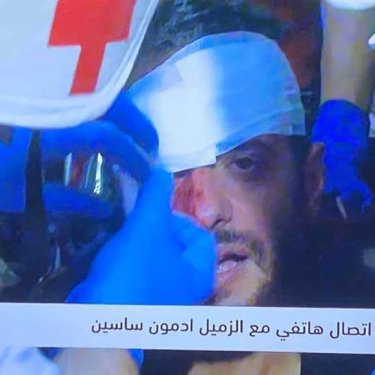At least 14 journalists injured while covering Beirut protests

Reporters Without Borders (RSF) condemns the increasingly frequent violence against journalists by the Lebanese security forces. According to the Samir Kassir Foundation, a Lebanese NGO, at least 14 journalists were injured, many of them by police and soldiers, while covering angry anti-government protests in Beirut on 8 August.
The injured journalists included LBC TV reporter Edmond Sassine, who was struck on the head by a stone thrown during clashes between protesters and security forces on Riad Al-Solh Square, and MTV journalist Fadi Skaff, whose head was hit by a stone near the parliament building.
This latest wave of protests was triggered by a massive explosion in a warehouse in Beirut’s port on 4 August.
The media victims reported on 8 August included freelancer Makram Halabi, who was hospitalized after being hit in the leg by rubber bullets, and Alexandre Khachachou, a reporter for the Annahar daily newspaper, who was badly beaten by members of the Amal Movement. His attackers also seized his equipment.
Rita Kabalan, a photojournalist who was filming the protests, managed to record the moment when a soldier chased her and deliberately hit her with his rifle as she was fleeing along with many protesters.
“The attacks against journalists are growing in Lebanon,” said Sabrina Bennoui, the head of RSF’s Middle East desk. “It is very disturbing to see the security forces target journalists who are reporting from within the ranks of the demonstrators. Attacks of this kind, which are increasing in frequency, must be stopped as a matter of the utmost urgency.”
Aside from the journalists with injuries that needed hospitalization, reporters found it very hard to work because of all the teargas fired by the security forces.
Many journalists have been the victims of attacks by both security forces and demonstrators ever since a wave of anti-government protests began in Lebanon in October. Lebanon is ranked 102nd out of 180 countries in RSF's 2020 World Press Freedom Index, one place lower than in 2019.



